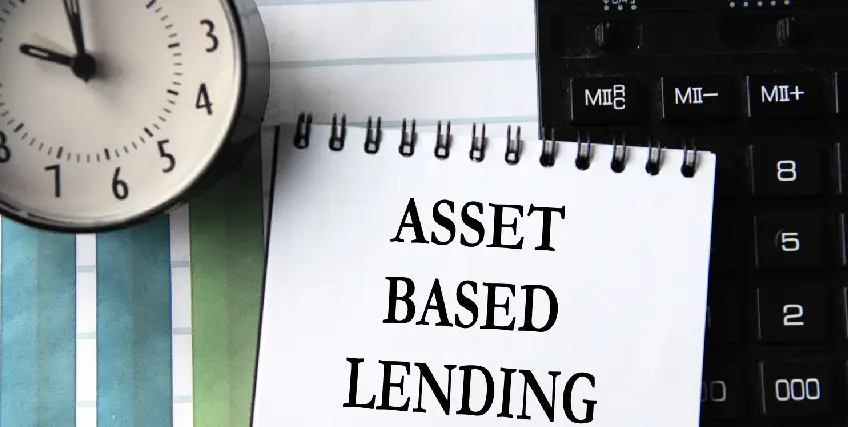Looking for Business Financing?
Apply now for flexible business financing. Biz2Credit offers term loans, revenue-based financing, lines of credit, and commercial real estate loans to qualified businesses.
Set up a Biz2Credit account and apply for business financing.
Key Takeaways
Business loans support small business growth and financial stability.
Early recognition of financial warning signs helps protect operations.
When you need a business loan, the right financing option depends on credit score, loan amount, and repayment structure.
Guidance from trusted lenders and financial experts ensures informed decisions when you need a business loan.
Every small business experiences moments when funds feel stretched thin. Rent, payroll, or new equipment can test even the most prepared owner. The question many face is simple, "How can I get a loan to start a business or expand one?"
Access to the right loan can solve that concern. From working capital to commercial real estate purchases, several financing options exist when they need a business loan. Yet, many small business owners hesitate until cash flow turns critical. The truth is that acting early often leads to better interest rates, flexible repayment terms, and peace of mind.
This guide highlights ten signs that indicate when it's time to consider a loan and how the right financing choice can strengthen your company's future.
Why Businesses Often Hesitate to Borrow
Many entrepreneurs associate loans with debt or risk. In reality, responsible borrowing supports stability and growth. The hesitation often stems from uncertainty about eligibility, credit score, or the small business administration's process.
Banks and SBA-approved lenders have programs designed to fit different company sizes and industries. However, misunderstanding loan programs or fear of high interest rates often delays crucial funding. Therefore, recognizing when a business loan can help is the first step toward long-term business success.
10 Signs You May Actually Need a Business Loan
Every company's financial journey looks different. However, several indicators reveal when external funding is the smart move.
Cash Flow Feels Tight
Growth Exceeds Current Capacity
Equipment Requires Replacement
Seasonal Fluctuations Affect Operations
Opportunity for Expansion Arises
Debt Consolidation Becomes Necessary
New Business Launch Needs Capital
Credit Score Needs Improvement
Delayed Payments Affect Stability
Expansion into New Markets Requires Investment
Cash flow drives every small business. If incoming payments no longer cover daily operations, external financing may help. Small business owners may need a business loan such as a short-term term loan or business line of credit that can fill temporary gaps while maintaining payroll and supplier relationships.
When sales increase faster than resources allow, expansion becomes necessary. At this stage, owners often realize they need a small business loan to upgrade inventory, hire staff, or lease larger space. Hence, timely access to funds ensures operations match customer demand without disrupting service quality.
Outdated or broken machinery can halt production. Financing new tools or equipment through a fixed-rate loan helps maintain efficiency. However, when small business owners need a business loan, lenders consider the loan amount, credit history, and annual revenue before offering terms.
Retailers, tourism agencies, and service providers often experience seasonal dips. Maintaining a consistent cash flow during slower months protects the business. Entrepreneurs may need a business loan, such as a revolving line of credit or an SBA Microloan, to manage temporary shortages until revenue stabilises.
Sometimes, a great deal comes along, like affordable real estate or a chance to acquire another local business. Securing a loan quickly allows owners to act on those opportunities before competitors do. Lenders with years of experience guide borrowers through underwriting and credit approval efficiently when they need a business loan.
Multiple high-interest debts can strain profits. Refinancing into one structured loan with a lower interest rate improves repayment predictability. It also streamlines monthly payments, freeing up capital for future growth.
Many ask, "How can I get a loan to start a business?" The approval depends on creditworthiness, business plan strength, and financial projections. Lenders, including those backed by the Small Business Administration, offer startup-friendly financing options for new entrepreneurs when they need a business loan. Also, opening a business checking account and maintaining accurate records supports early approval and builds credibility.
A strong credit history opens better financing doors. Timely loan repayment improves credit scores and builds trust with lenders. Even if current credit isn't ideal, consistent repayment of smaller loans can demonstrate reliability over time.
Late payments from clients disrupt financial balance. Instead of waiting for receivables, a working capital loan ensures continuity. It covers utilities, supplier bills, and rent without stressing the budget. Moreover, financial institutions offering business funding often provide flexible repayment options based on cash flow.
Reaching new customers often demands marketing, staffing, and upgraded systems. Business financing solutions like SBA 7(a) loans or term loans support these growth phases. Owners who need a business loan can choose between fixed-rate and variable options based on comfort with repayment terms. If expansion feels overdue, it might be the clearest sign that the company needs business funding to move forward.
Choosing the Right Loan Type
Finding the right financing depends on understanding different loan programs and business needs. Here's a quick overview of popular types of financing options when small business owners need a business loan:
SBA Loans: Backed by the U.S. government, these loans offer favorable rates and flexible repayment terms to qualified apllicants. Programs like the SBA 504 suit real estate purchases.
Term Loans: Popular for long-term investments, such as new equipment or facility expansion.
Business Line of Credit: Useful for covering short-term expenses or maintaining steady cash flow during lean months.
Commercial Real Estate Loans: Designed for property purchases or renovations that enhance business value.
Pro Tip: When applying for a business loan, consider origination fees, loan amounts, and monthly payments. Banks that are members of the FDIC ensure deposit safety, while SBA-approved lenders often offer faster processing and clear repayment schedules.
Understanding Lender Evaluation
Lenders review credit history, FICO score, business revenue, and cash flow before loan approval. They also assess business credit cards, existing banking products, and repayment consistency. These factors show how well the business manages money over time.
When needing a business loan, higher credit score signals reliability, while a healthy cash flow shows the ability to repay monthly payments on time. Lenders also review bank account activity to see how regularly deposits come in and how expenses are managed. Companies that maintain a steady inflow of revenue have stronger chances of approval.
Many lenders prefer working with businesses that already use transparent banking products such as business checking accounts. It helps track income, expenses, and debit card transactions separately from personal finances. This level of organization builds lender confidence and shortens approval timelines.
If the company is new, presenting clear financial projections and a detailed plan for how funds will support business growth becomes critical. Lenders look for realistic expectations rather than inflated figures. Demonstrating how the loan aligns with specific goals, like equipment upgrades, hiring staff, or securing commercial real estate, creates a stronger case for approval.
Strengthening Financial Readiness
Preparing for a loan involves more than paperwork. It requires clean bookkeeping, updated profit and loss statements, and a business plan showing how funds will support growth.
Business owners should maintain separate business and personal accounts to ensure clean financial records during loan evaluation. Additionally, opening a business checking account and managing debit card activity through that account simplifies verification during loan approval.
The Bottom Line
Recognizing the right time to borrow when needing a business loan isn't a sign of struggle, it's a sign of strategy. A well-structured loan improves cash flow, strengthens operations, and opens new growth opportunities.
For small business owners exploring how to get started, the first step is reviewing business needs and understanding credit health. Then, compare lenders who specialize in small business loans and offer flexible financing options.
If you need business funding to stabilize operations, invest in new equipment, or expand into new markets, explore SBA and private lending programs that match your goals. The right decision today can define tomorrow's growth. Connect with a trusted SBA or alternative lender to compare small business financing options and find the best fit for your growth goals.
FAQs About Signs for Needing a Business Loan
1. How can I get a loan to start a business?
Getting a loan to start a business begins with preparation. Lenders usually review your credit score, business plan, and projected cash flow. Having a business checking account, tax records, and proof of annual revenue strengthens eligibility.
2. How do lenders determine eligibility for a business loan?
Lenders review several factors before approval. They assess your FICO score, annual revenue, cash flow, and existing business debt. A history of on-time payments, responsible credit card use, and solid bookkeeping records improves creditworthiness. Strong documentation shortens underwriting time and builds lender trust.
3. When does a business actually need a loan?
A loan becomes necessary when operations or growth plans exceed available funds. Signs include low cash flow, delayed payments, equipment needs, or expansion into new markets. Recognizing these early allows owners to secure financing before disruptions occur.
4. How does refinancing help small business owners?
Refinancing allows businesses to replace multiple high-interest loans with one manageable term loan. It simplifies repayment, reduces monthly payments, and often leads to lower overall interest costs. This approach improves cash flow and makes budgeting easier.
5. What if I only need business funding for short-term needs?
Short-term financing works well for covering temporary expenses or managing seasonal dips. Options like a business line of credit or a short-term SBA loan can help. These solutions keep cash flow steady without long-term repayment commitments.




